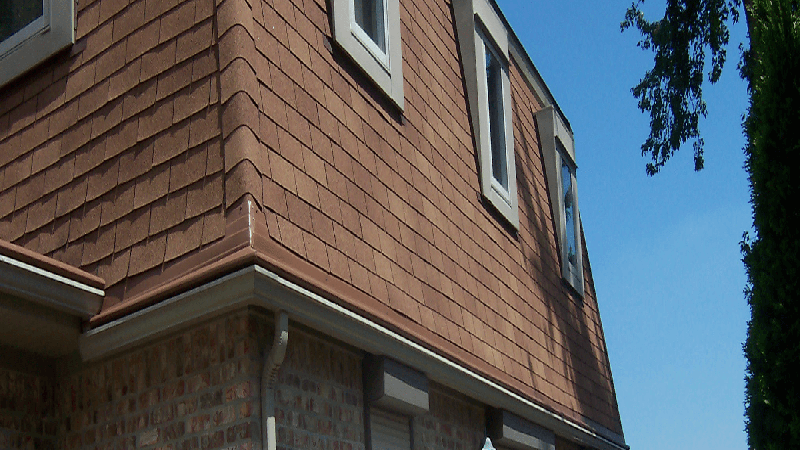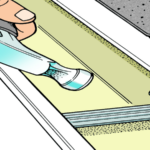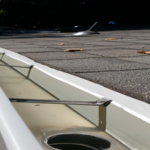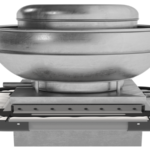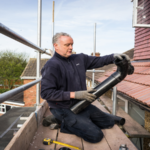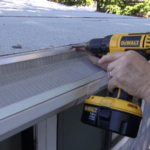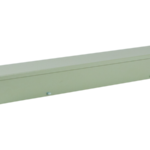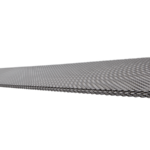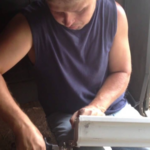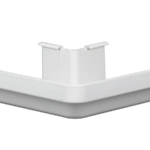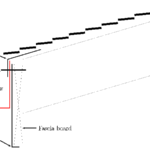If your home is anything like most, the gutters are one of the most important yet neglected features. Most people don’t think about their gutters until they have a problem, such as water damage from a clogged or overflowing gutter. While it’s true that you can clean your gutters yourself, it’s a messy and dangerous job that’s best left to the professionals.
- A good rain gutter installation company will have a portfolio of past projects for you to look at. This will give you a good idea of their workmanship and attention to detail.
- A good rain gutter installation company will be able to give you a quote without having to come to your home. This shows that they’re confident in their ability to do the job right and that they’re not trying to upsell you on unnecessary extras.
- A good rain gutter installation company will be able to answer any questions you have about the process. They should be able to explain the benefits of different types of gutters and help you choose the best option for your home.
What are some common mistakes that people make when installing gutters?
One of the most common mistakes people make when installing gutters is not making sure that the gutters slope downward toward the downspouts. This is important because if the gutters are level or slope upward, the water will not flow properly and will instead pool in the gutters, which can lead to a number of problems such as leaks, overflows, and eventually, structural damage to your home.
Another common mistake is not installing gutter guards. Gutter guards help to keep leaves and other debris out of your gutters, which can clog them and cause the same problems as mentioned above. While they may cost a bit more upfront, they will save you time, money, and hassle in the long run.
Finally, another mistake people make is not cleaning their gutters on a regular basis. Even with gutter guards, it is important to clean your gutters at least once a year to remove any build-up of debris. If you don’t clean your gutters, the debris can eventually cause the gutters to sag or even break away from your home, which can be a very costly repair.
How do you fix water behind gutters?
If you have water behind your gutters, it is important to take care of the problem as soon as possible. Water can cause serious damage to your home if it is not taken care of. There are a few things that you can do to fix water behind gutters.
One option is to use a garden hose to try and flush the water out. This may take a few tries, but it can be effective. Another option is to use a wet/dry vac to suck the water out. This can be a little more difficult, but it will get the job done.
If you have a lot of water behind your gutters, you may need to call a professional to help you. They will be able to help you get the water out and make sure that your gutters are repaired properly.
What is the best gutter guards consumer reports?
There are a few types of gutter guards that are available on the market. Some of them are more effective than others. The best gutter guards are usually the ones that are made of stainless steel or aluminum. They should also be able to be installed easily and should be durable.
What is the life expectancy of rain gutters?
The average lifespan of a rain gutter is 20-30 years. However, this number will differ based on the type of gutter, the climate, and how well the gutter is maintained. For instance, aluminum gutters will last longer in warmer climates, while galvanized steel gutters will last longer in colder climates. Furthermore, gutters that are regularly cleaned and maintained will last longer than those that are not.
How do you tell if gutters are installed correctly?
To ensure that your gutters are installed correctly, you should first check to see that the gutters are level. If they are not level, then water will not be able to drain properly and could cause damage to your home.
Next, you will want to check the seams of the gutters to make sure that they are sealed correctly. If the seams are not sealed, then water could leak through and cause damage to your home.
Finally, you will want to check the downspouts of the gutters to make sure that they are installed correctly. If the downspouts are not installed correctly, then water could back up into the gutters and cause damage to your home.
Why would you not put gutters on a house?
There are a few reasons why one might choose not to install gutters on their home. The first reason is that gutters can be quite expensive to purchase and install, and they require regular maintenance to keep them functioning properly. Additionally, gutters can actually cause water damage to a home if they are not installed correctly or if they become clogged with debris. Finally, some people simply feel that gutters are not necessary and prefer the look of a home without them.
Should gutters be nailed or screwed in?
There is no definitive answer to this question as it depends on a number of factors, such as the type of gutter, the material it is made of, the size and weight of the gutter, the climate, and the installation surface. In general, however, it is advisable to use screws rather than nails when installing gutters.
There are several reasons for this. First, screws create a stronger connection than nails, so they are less likely to come loose over time. Second, screws are less likely to cause damage to the gutter material than nails, which can potentially cause leaks. Third, it is easier to adjust the position of a screw than a nail, so if the gutter needs to be moved slightly during the installation process, it is less likely to cause damage.
Ultimately, the decision of whether to use nails or screws to install gutters is up to the homeowner. If you are unsure, it is always best to consult with a professional gutter installer to get the best advice for your particular situation.
Should there be a gap between roof and gutter?
There are a few reasons why you might want to have a gap between your roof and your gutter. The most common reason is to prevent water from pooling on your roof and causing damage. If your roof is sloped, water can pool in the low spots and cause leaks or other damage. Having a gap between the roof and the gutter will allow water to runoff more easily and prevent it from pooling on the roof.
Another reason to have a gap between the roof and gutter is to prevent leaves and other debris from clogging up your gutters. If leaves and debris are allowed to build up in your gutters, they can cause water to back up and overflow, which can damage your roof and your home. Keeping a gap between the roof and gutter will allow leaves and debris to fall through and prevent them from clogging up your gutters.
The final reason to have a gap between the roof and gutter is to prevent ice dams from forming. Ice dams can form when water from melting snow or ice backs up behind a dam of ice that has formed at the edge of your roof. This can cause water to leak into your home, which can damage your ceilings, walls, and floors. Having a gap between the roof and gutter will allow water to runoff more easily and prevent ice dams from forming.
Final Talk
If you’re concerned about outdoor water damage, don’t settle for just any rain gutter installation company. Make sure you choose a company with expertise to ensure your home is protected.
